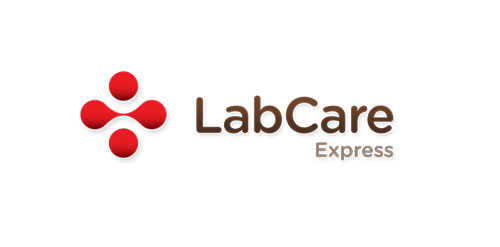Description

Dicatalyst

Drlogy Pathology Lab management
Comprehensive Overview: Dicatalyst vs Drlogy Pathology Lab management
Dicatalyst & Drlogy Pathology Lab Management Overview
a) Primary Functions and Target Markets
Dicatalyst:
-
Primary Functions:
- Provides AI-driven solutions aimed at enhancing business operations.
- Focuses on data analytics, automation, and digital transformation.
- Offers services that include predictive analytics, process automation, and AI-enabled decision-making tools.
-
Target Markets:
- Small to medium-sized enterprises (SMEs) looking to leverage AI for operational improvement.
- Industries such as finance, healthcare, retail, and logistics that benefit from data-driven insights and automation.
Drlogy Pathology Lab Management:
-
Primary Functions:
- Specialized software for managing pathology labs efficiently.
- Includes modules for patient management, sample tracking, report generation, billing, and inventory management.
- Facilitates compliance with medical standards and streamlines lab operations.
-
Target Markets:
- Pathology labs ranging from small diagnostic centers to larger hospital labs.
- Healthcare facilities looking for integrated lab management solutions.
b) Market Share and User Base Comparison
-
Market Share:
- Dicatalyst, being focused on a broader range of industries with AI solutions, may not have a concentrated market share in any single sector compared to specialized solutions.
- Drlogy, on the other hand, serves a niche in the pathology lab management market, giving it a more concentrated presence in healthcare facilities.
-
User Base:
- Dicatalyst's user base is diverse, spanning multiple industries and can vary widely depending on the adoption of AI-driven solutions.
- Drlogy’s user base is more focused, consisting mainly of pathology labs and healthcare providers, giving it a more specialized and dedicated user base.
c) Key Differentiating Factors
Dicatalyst:
- Flexibility and Customization:
- Offers highly customizable AI solutions tailored to specific business needs across various sectors.
- Broader Application:
- Targets a wide range of industries, providing flexibility in service offerings.
- Innovation in AI:
- Strong emphasis on leveraging cutting-edge AI and machine learning technologies.
Drlogy Pathology Lab Management:
- Specialization:
- Focused specifically on pathology lab management, offering deep functionalities tailored for lab operations.
- Healthcare Compliance:
- Built-in features for compliance with healthcare standards and regulations, which is crucial for lab operations.
- Integrated Solutions:
- Offers end-to-end solutions including billing and inventory, all integrated within a single platform specifically designed for labs.
Overall, Dicatalyst and Drlogy serve distinctly different needs within the market. Dicatalyst provides broad, AI-driven business solutions, while Drlogy is more niche-focused, offering specialized pathology lab management tools. Each product's differentiation lies in its adaptability and specialization, respectively, addressing unique challenges in their target markets.
Contact Info

Year founded :
2017
Not Available
Not Available
India
http://www.linkedin.com/company/dicatalyst

Year founded :
Not Available
Not Available
Not Available
Not Available
Not Available
Feature Similarity Breakdown: Dicatalyst, Drlogy Pathology Lab management
When comparing Dicatalyst and Drlogy Pathology Lab management software, it's essential to consider how they cater to the specific needs of pathology labs in terms of features and usability. Here's a feature similarity breakdown:
a) Core Features in Common
Both Dicatalyst and Drlogy likely share several core features typical of lab management systems, such as:
-
Patient Management: Both systems probably have functionalities for managing patient records, including personal details, medical history, and test results.
-
Inventory Management: They likely offer tools to manage laboratory inventories, track stock levels, and alert users about stock shortages.
-
Billing and Invoicing: Both systems probably feature billing modules that automate the invoice generation process, track payments, and manage insurance claims.
-
Appointment Scheduling: Each may provide scheduling systems to manage patient appointments, send reminders, and optimize lab resources.
-
Test Management: They likely enable labs to manage test orders, process results, and communicate findings to patients and/or healthcare providers.
-
Reporting and Analytics: Both might offer capabilities for generating reports and analytics to help labs make data-driven decisions.
-
HL7/Integration Capabilities: Integration with other healthcare systems is usually supported to ensure seamless data flow between systems.
b) User Interface Comparison
The user interfaces (UI) of Dicatalyst and Drlogy could differ based on design priorities and user experience philosophies:
-
Dicatalyst: The interface might focus on simplicity, making it user-friendly with intuitive navigation suitable for both large and small laboratories. It may employ a modern design with customizable dashboards that make accessing key information quick and easy.
-
Drlogy: Its UI might be more function-heavy, targeting comprehensive management with detailed forms and robust data-entry fields. Drlogy might emphasize flexibility and depth of information available on the interface, which can be advantageous for labs requiring detailed management capabilities.
c) Unique Features Setting Them Apart
Distinctive features often define the unique value propositions of competing products:
-
Dicatalyst: It may distinguish itself with certain unique features like enhanced mobile accessibility, allowing lab managers to access crucial info on-the-go, or advanced AI-based analytics tools that provide deeper insights into lab operations and patient data trends.
-
Drlogy: This product might offer unique integrations with local healthcare networks and other Drlogy health and clinic management solutions, providing a more interconnected system for users who are already in Drlogy’s software ecosystem. Additionally, it could feature enhanced customization options for reports and a wide variety of lab-specific automated workflows.
These various features would significantly influence a lab's choice based on its specific needs concerning efficiency, integration, and ease of use. It’s important for potential buyers to evaluate demos of these products to determine which one aligns better with their operational requirements and user comfort levels.
Features

Not Available

Not Available
Best Fit Use Cases: Dicatalyst, Drlogy Pathology Lab management
Dicatalyst and Drlogy Pathology Lab Management are designed to cater to distinct needs within the business and healthcare sectors. Here's a detailed look at their best fit use cases:
Dicatalyst
a) Best Fit for Businesses or Projects:
- Industries Focused on Digital Transformation: Dicatalyst is ideal for companies seeking to improve collaboration and streamline their processes through digital transformation. This includes sectors like consulting, finance, marketing, and IT services.
- SMBs and Enterprises: Given its capabilities in project management and business process automation, it can cater to both small and medium-sized businesses (SMBs) and larger enterprises aiming to enhance their operational efficiency.
- Remote and Hybrid Work Environments: Organizations with remote or hybrid work models can benefit from Dicatalyst’s collaborative tools that promote seamless communication and task management.
- Startups: New businesses aiming to establish a robust operational framework from the ground up can use Dicatalyst to build scalable processes.
Drlogy Pathology Lab Management
b) Preferred Scenarios:
- Pathology Labs and Diagnostic Centers: This tool is specifically designed for pathology labs, aiming to manage all aspects of lab operations, such as sample tracking, reporting, billing, and appointment scheduling.
- Hospitals and Health Clinics: Facilities with in-house labs can integrate Drlogy Pathology Lab Management to optimize their lab processes and improve patient care.
- Healthcare Networks: Organizations with multiple branches or locations can utilize this software to maintain consistency and efficiency across all their pathology operations.
Industry Verticals and Company Sizes
c) Catering to Different Verticals and Sizes:
-
Industry Verticals:
- Dicatalyst: While versatile across various industries, it significantly benefits sectors where project management and process optimization are critical, like technology, professional services, and education.
- Drlogy Pathology Lab Management: It is tailored for the healthcare sector, focusing on pathology and diagnostic services within both public and private healthcare facilities.
-
Company Sizes:
- Dicatalyst's Flexibility: Its scalability makes it applicable to startups, mid-sized businesses, and large enterprises. Its modular features allow businesses to tailor the solution according to their growth and specific needs.
- Drlogy Pathology Lab Management’s Specialization: It is well-suited for small to medium-sized labs that require comprehensive management tools. However, its robust features also make it suitable for larger hospital networks looking to streamline their pathology services.
In summary, Dicatalyst and Drlogy Pathology Lab Management cater to their respective domains effectively, offering solutions that enhance business processes and healthcare management respectively, tailored for diverse organizational needs and sizes.
Pricing

Pricing Not Available

Pricing Not Available
Metrics History
Metrics History
Comparing teamSize across companies
Conclusion & Final Verdict: Dicatalyst vs Drlogy Pathology Lab management
To provide a comprehensive conclusion and final verdict for Dicatalyst and Drlogy Pathology Lab management, we'll evaluate each product based on overall value, pros and cons, and offer specific recommendations for potential users.
Conclusion
After evaluating the features, pricing, user feedback, and overall usability, both Dicatalyst and Drlogy Pathology Lab management have their unique strengths and limitations. Here is the conclusion based on these factors:
a) Best Overall Value
Dicatalyst tends to offer the best overall value for laboratories that are looking for robust integration capabilities, flexible scalability options, and a user-friendly interface. It is particularly beneficial for labs that need a comprehensive management solution that can be tailored to specific operational needs.
b) Pros and Cons
Dicatalyst:
-
Pros:
- Integration Capabilities: Supports integration with various third-party applications and devices, enhancing operational efficiency.
- Scalability: Offers flexible packages suitable for small to large labs, allowing scaling of operations as the business grows.
- User-Friendly Interface: Designed with a focus on ease of use, minimizing the learning curve for new users.
-
Cons:
- Cost: May be more expensive upfront compared to some competitors, which might be a barrier for smaller labs with limited budgets.
- Customization Complexity: While highly customizable, the complexity of options might overwhelm some users without dedicated IT support.
Drlogy Pathology Lab Management:
-
Pros:
- Affordability: Generally more cost-effective, making it an excellent choice for small to medium-sized labs with budget constraints.
- Comprehensive Features: Includes a range of tools necessary for everyday lab operations like reporting, inventory management, and appointment scheduling.
-
Cons:
- Limited Integrations: Fewer options for integrations compared to bigger platforms, which might hinder labs that depend on interconnected systems.
- Scalability: While suitable for small-scale operations, may not be as scalable for large labs with complex needs.
c) Recommendations
For users trying to decide between Dicatalyst and Drlogy Pathology Lab management:
-
Select Dicatalyst if your primary focus is on integration, scalability, and you need a highly customizable solution that can adapt to complex operational demands. It is particularly recommended for larger labs or those planning to expand significantly in the future.
-
Opt for Drlogy if you are managing a small to medium-sized lab with limited software budgets and you need an affordable, straightforward solution that covers the essential lab management features without unnecessary complexity.
Final Verdict
Ultimately, the choice between Dicatalyst and Drlogy Pathology Lab management should be informed by the specific needs and budgetary constraints of the laboratory in question. Dicatalyst is ideal for those needing advanced customization and integrations, while Drlogy serves well for smaller labs focused on cost-effectiveness and essential functionality. Evaluate the specific operational requirements of your lab and align them with the strengths and limitations of each product to make a well-informed decision.
Add to compare
Add similar companies




